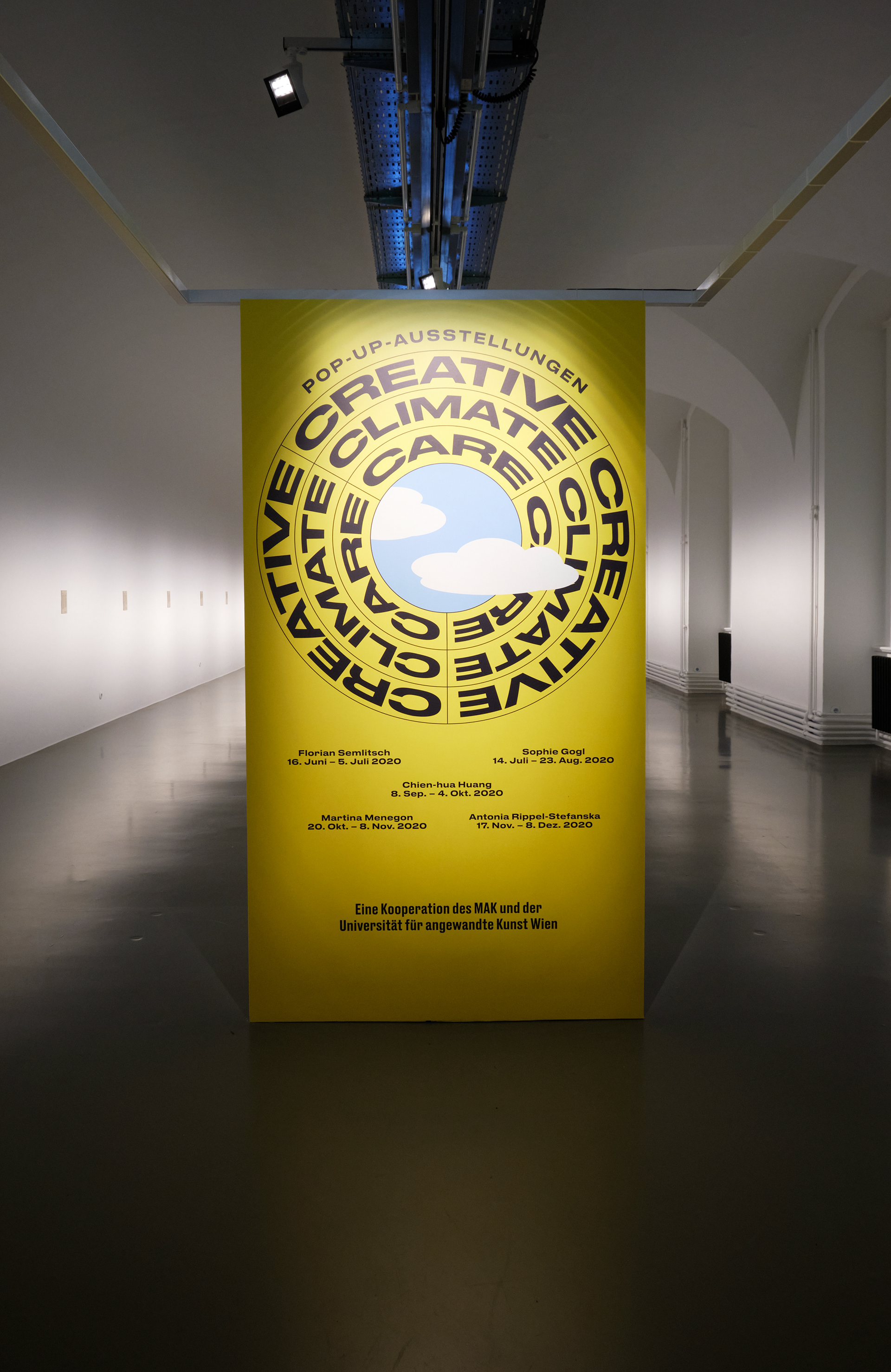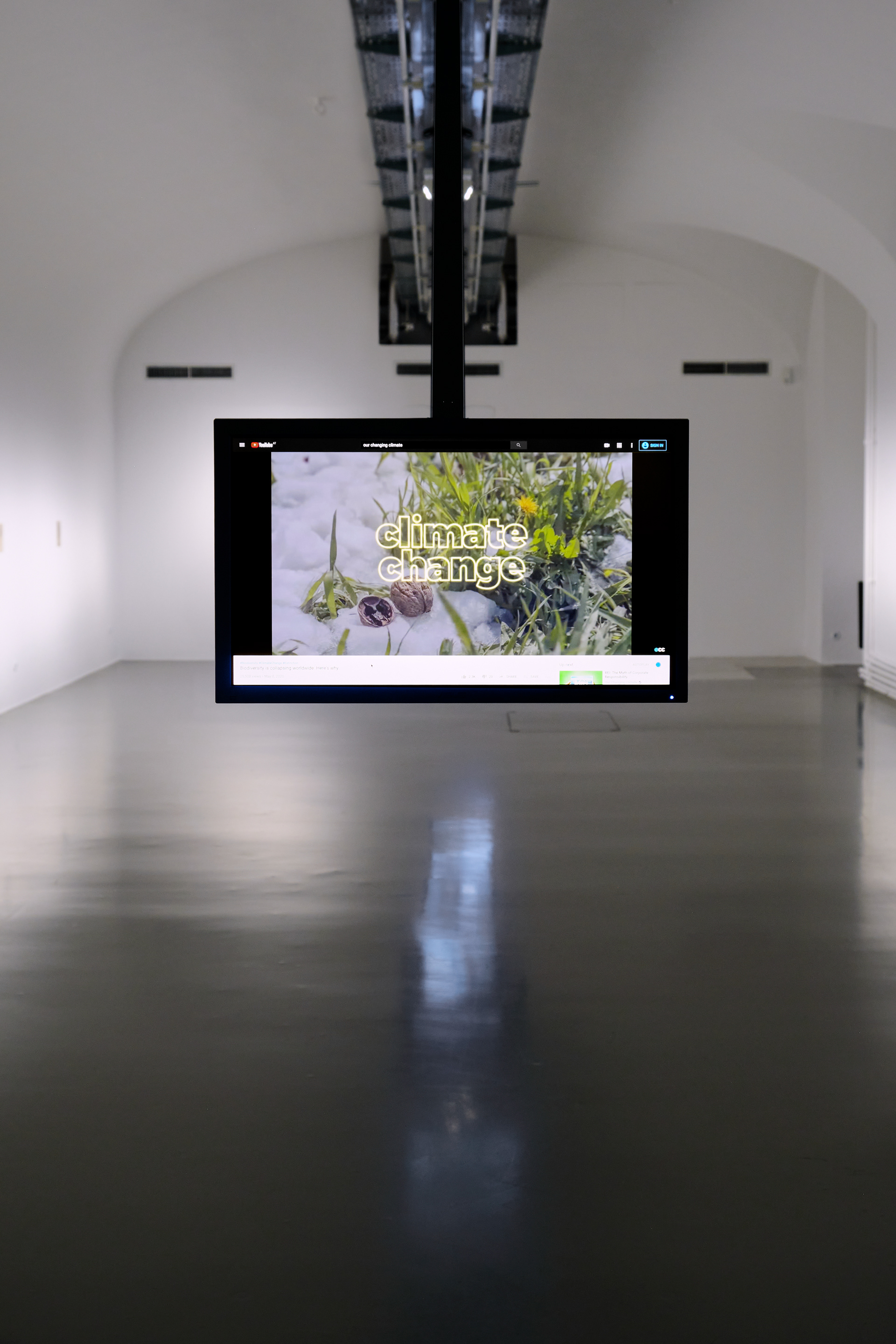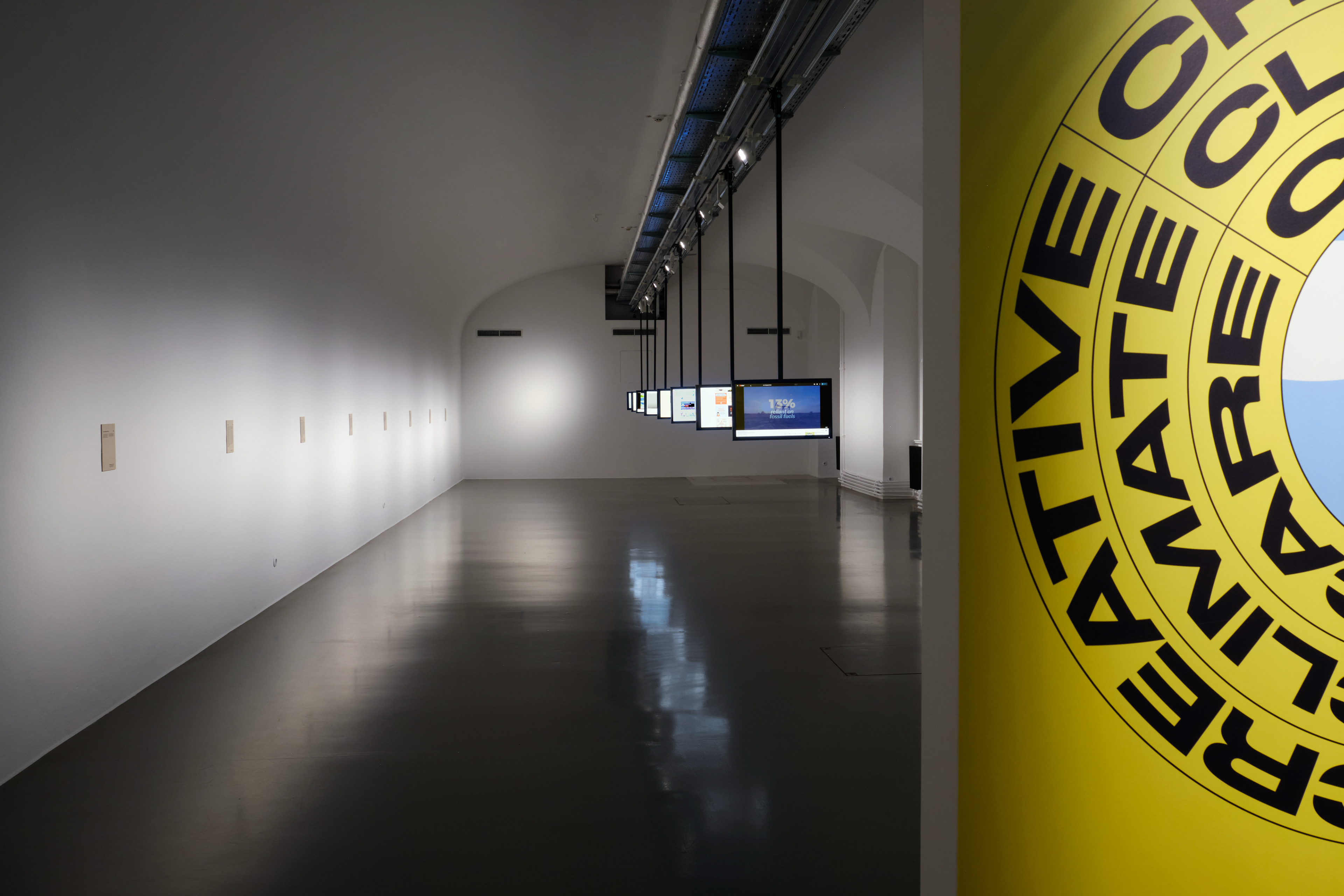The exhibition draws attention to those internet platforms that - consciously or unconsciously - produce and distribute interesting content on the subject of climate care. The selected content in the form of Instagram accounts and videos and tutorials by YouTubers will be presented in multimedia installation and is intended to question our current way of using social media while offering alternatives and the undiscovered.



Pictures © Dejan Ivkovic
For quite some time already, the development of the omnipresent tool has been digressing from its immediate communication function towards serving all areas of individual and collective entertainment, marketing of content and products. In this context, we are barely aware of the amount of energy required to, for example, watch high-definition videos, stream the latest episode of our favorite series on our way to work, or scroll through hundreds of images on social media. Worldwide, approximately 70 000 GB of information pass through the internet every second. Each GB consumes about 5 kWh. The energy required per GB per second would cover the average daily demand of 12.1 kWh of an Austrian household every 2.4 seconds. A large part of this required energy is due to social media platforms and video portals.
In the meantime an entire generation has grown up with these media, they are an important part of the global economy. But they also play an increasingly important role in relation to the issue of climate change.
Grafik Design © Theresa Hattinger
According to a study published by Oxford University Press in 2020, social media can have a significant influence on actions that promote climate change. They also influence consumer behaviour and the political participation of users. By personalizing the content, social media channels offer the possibility to make this abstract and comprehensive topic tangible through individual and emotionally charged contributions from opinion leaders (influencers) and friends (followers). This enables each individual to make a significant contribution to the discourse on the fight against climate change. Online platforms offer space to discuss and mobilize climate change activists - such as "Fridays for Future".
The characteristics attributed to the operators of successful channels (influencers) are becoming more and more indispensable to obtain a sustainable mindset. These include passion and dedication to the issues that are close to one's heart and the will to acquire new skills to develop oneself and one's project. It is also important to share knowledge once again because the microcosm of one person in that subject area is the macrocosm of another and vice versa. This is how communities form which work together to bring about change.
We need to realize that we are all future designers and that every decision has an impact, whether it is political, what we consume, or which social media channels we subscribe to and follow.
"Austrias leading platform for Corporate Social Responsibility (CSR) and Sustainable Development"
I Some time ago I was asked by respACT to write a contribution on the topic of climate change. I based it on the theme of my exhibition "Subscribe Climate Care"